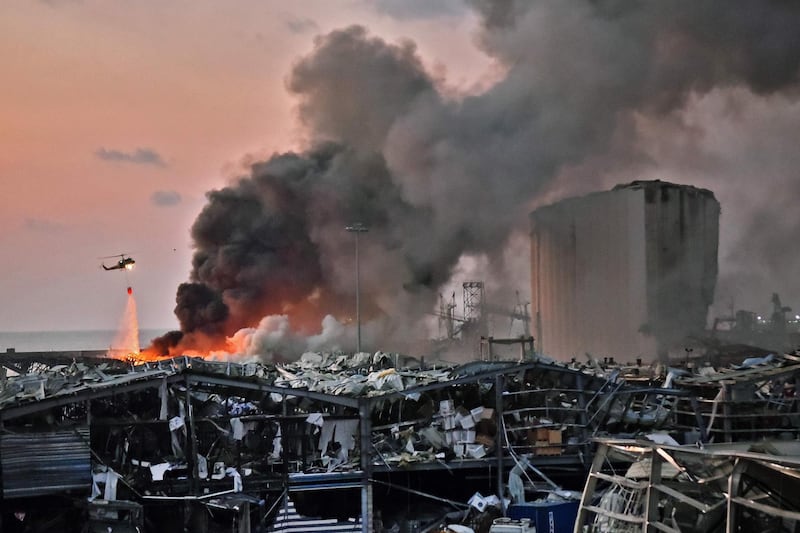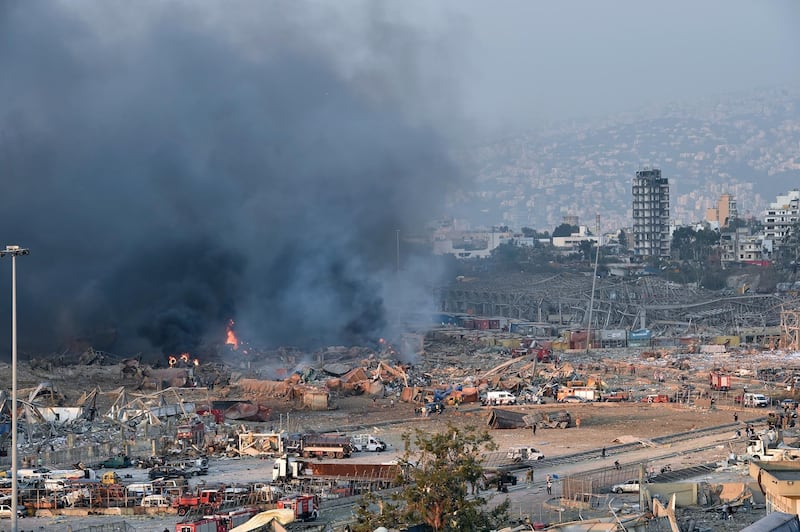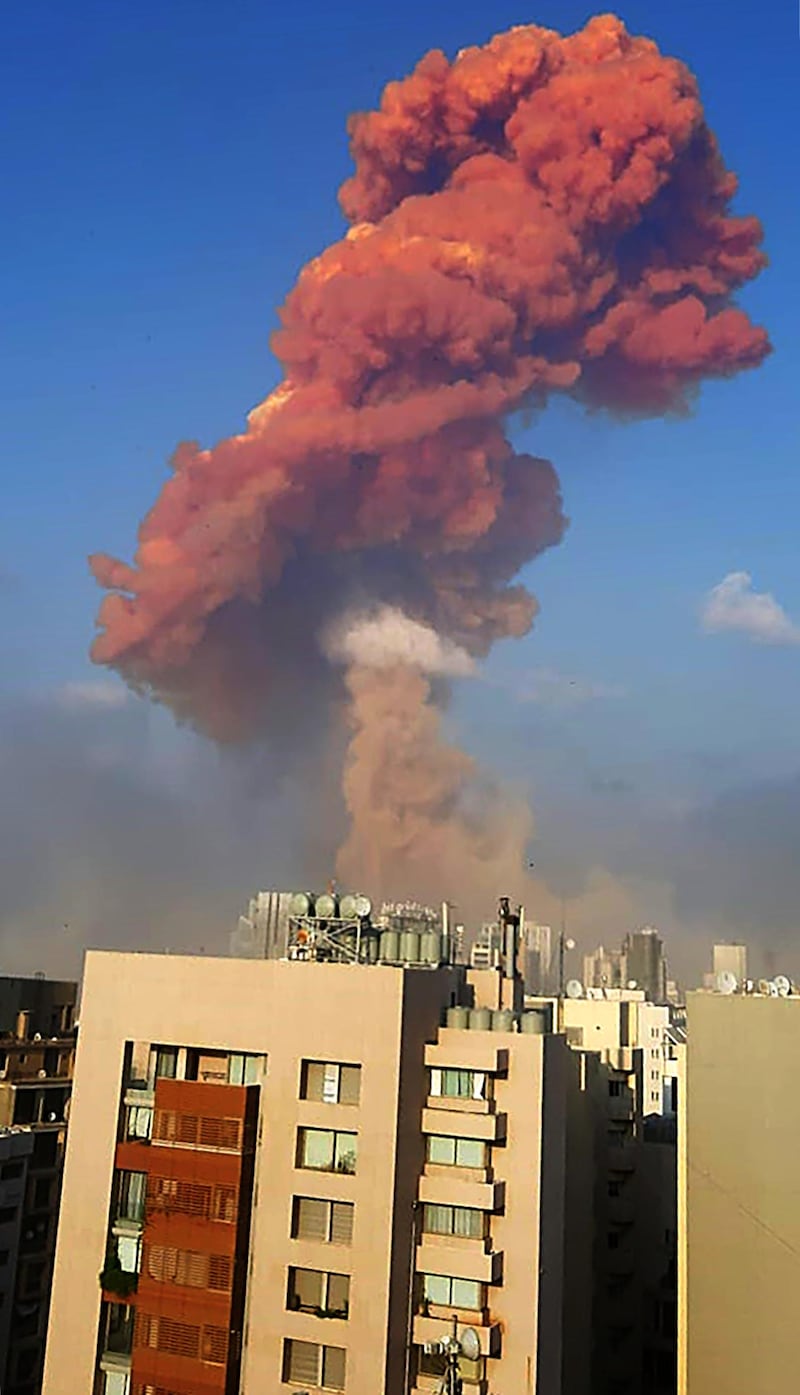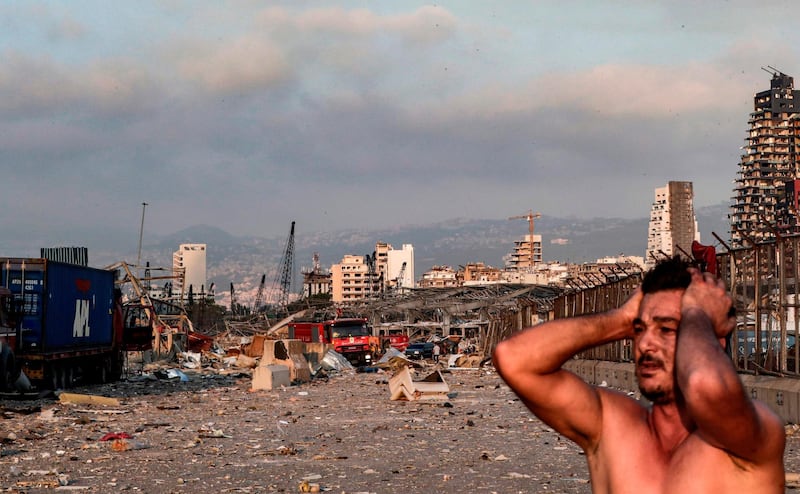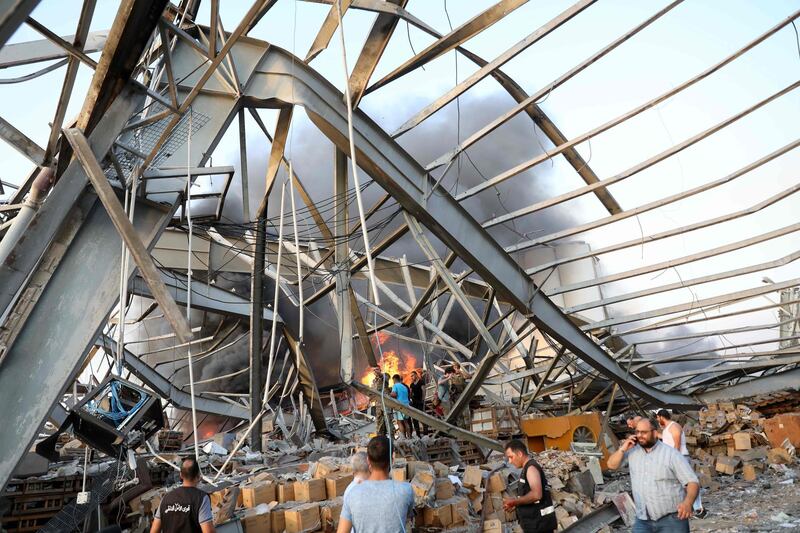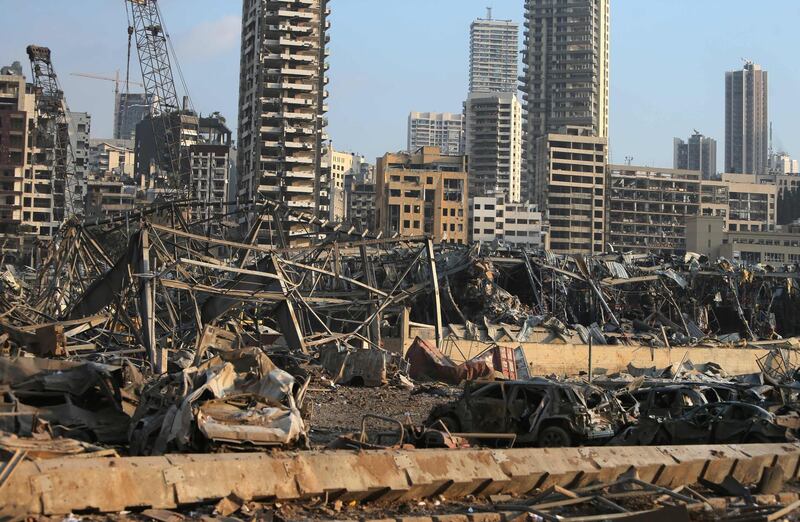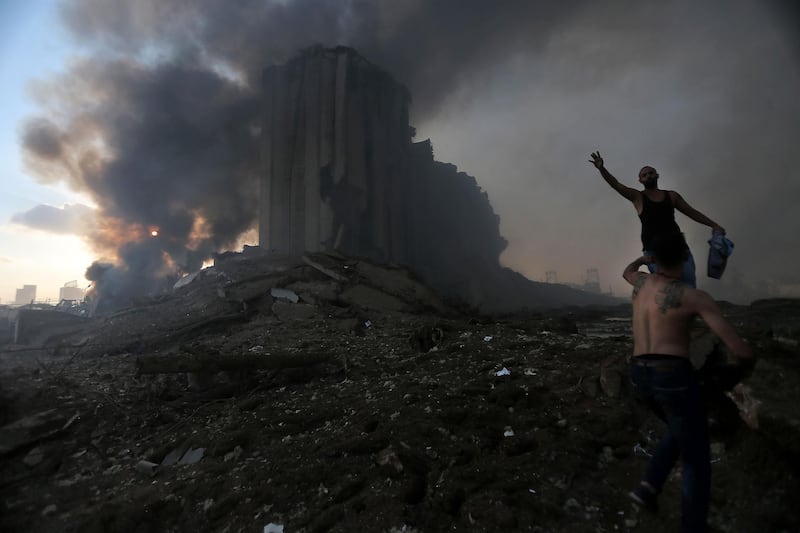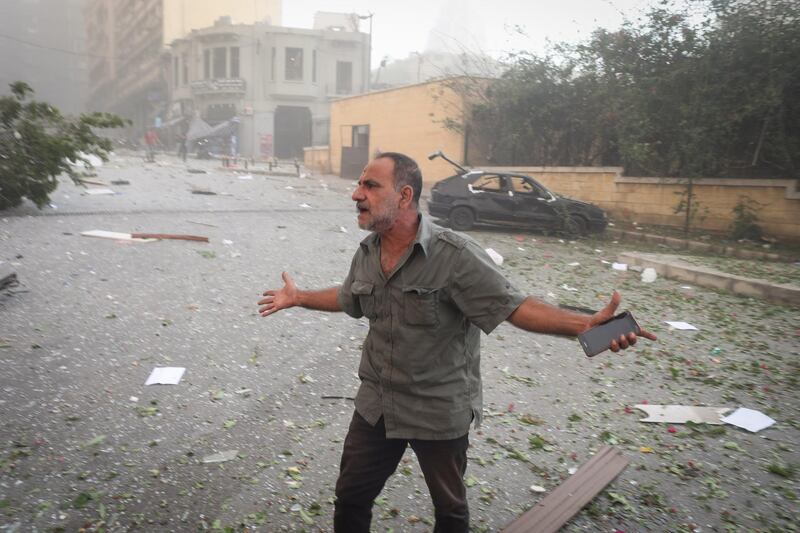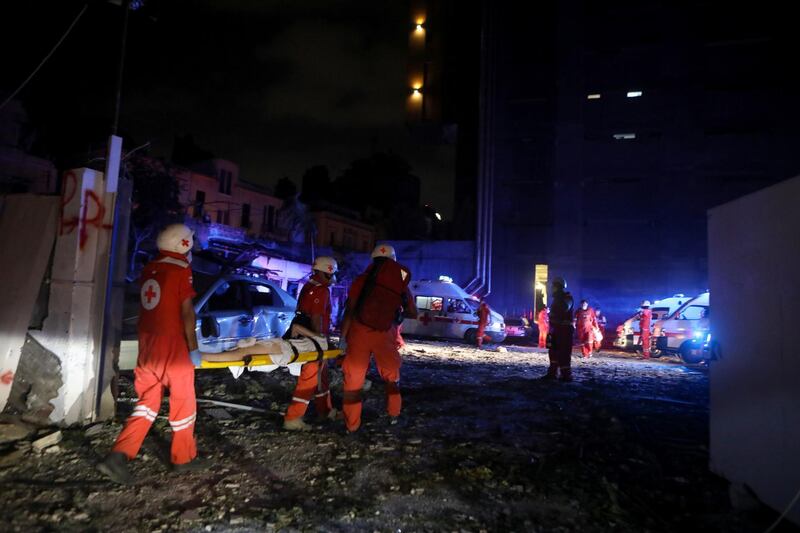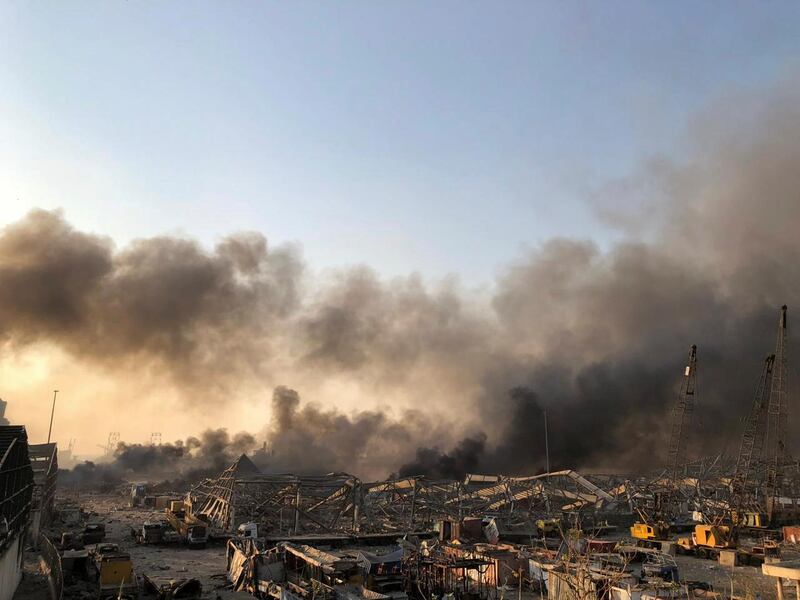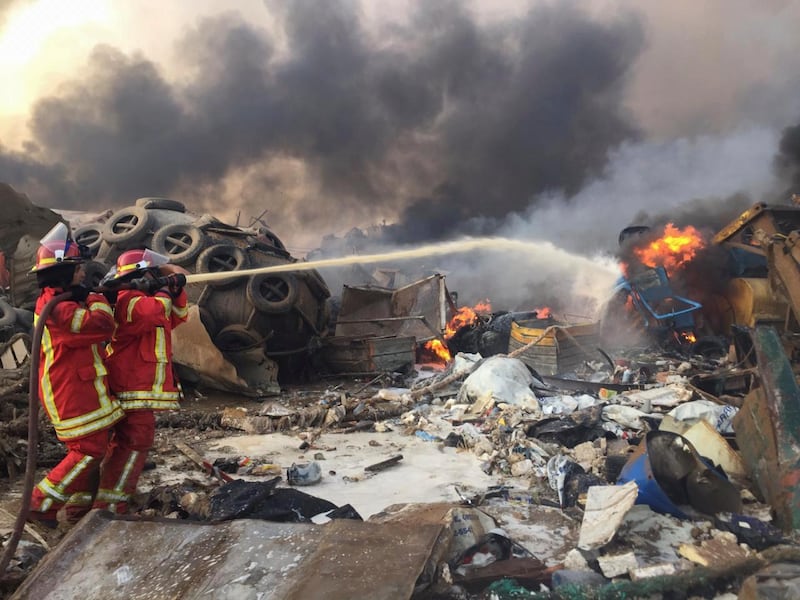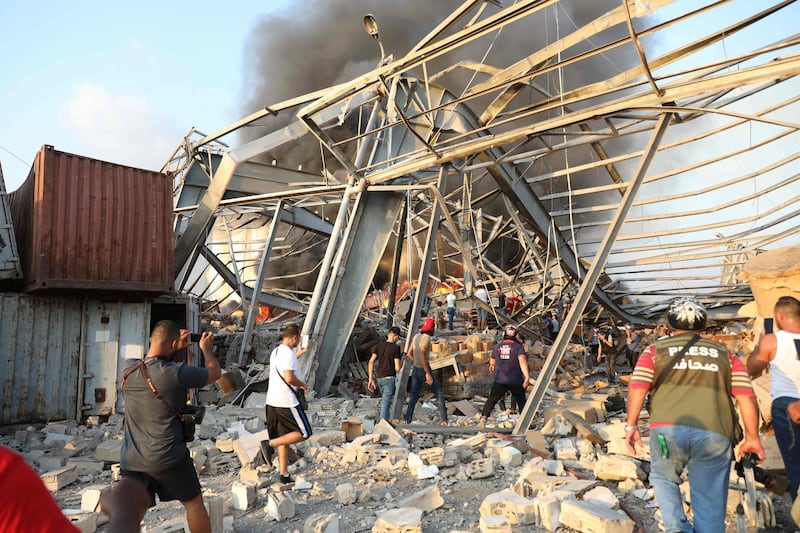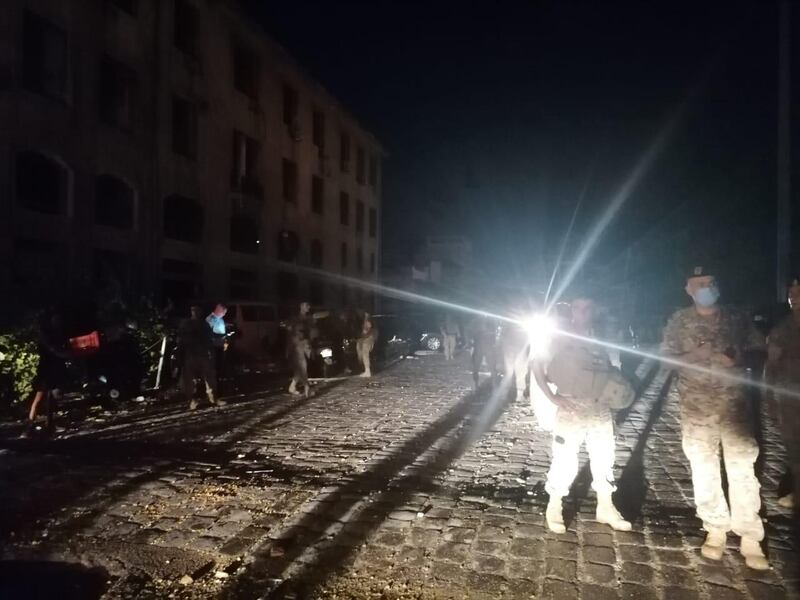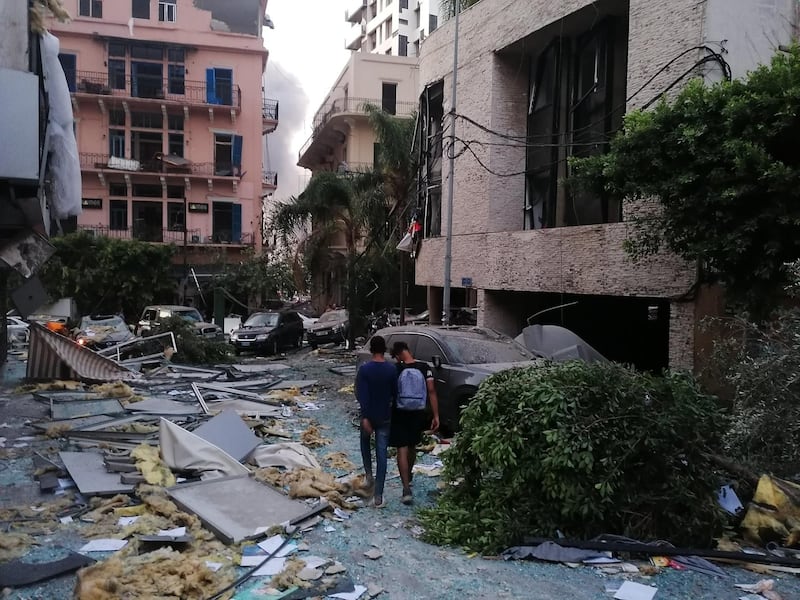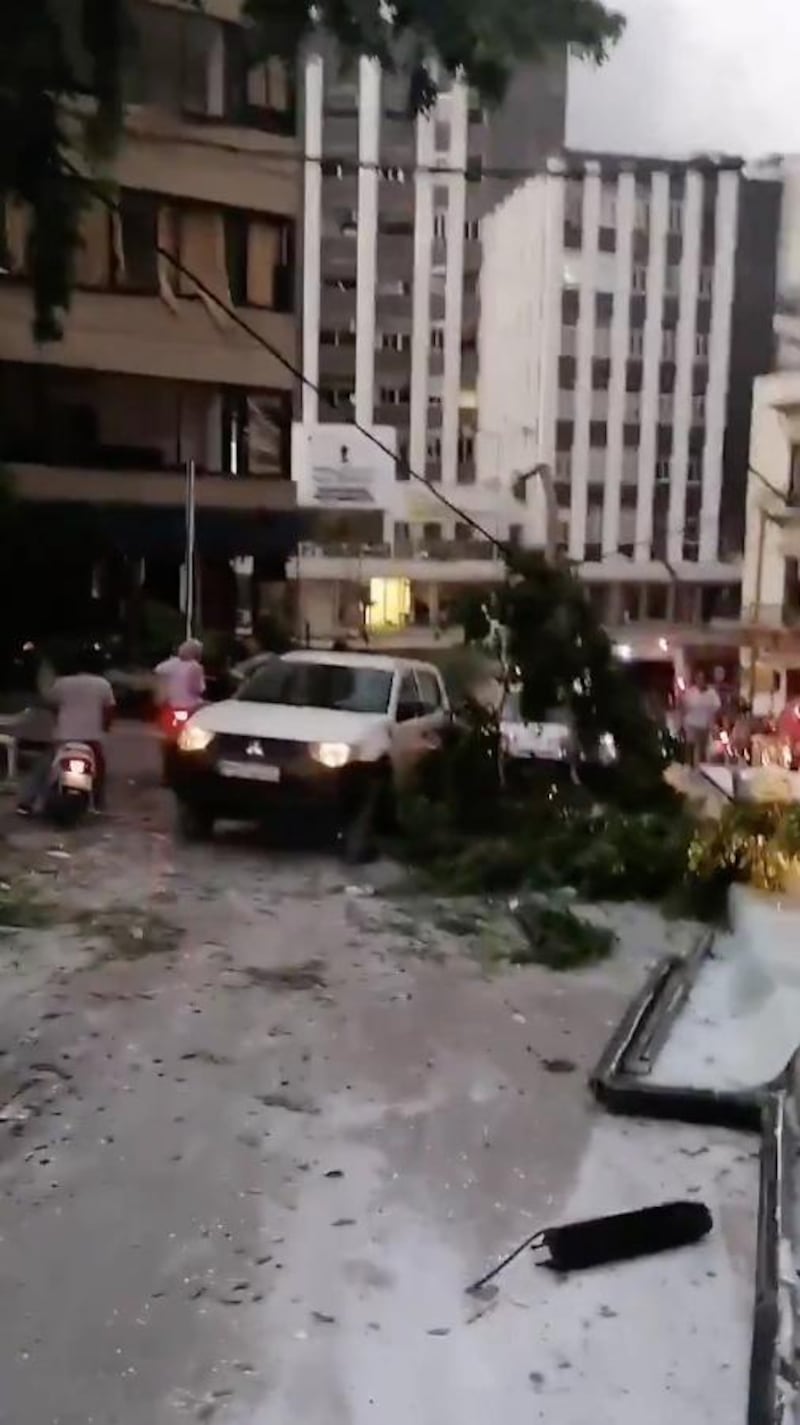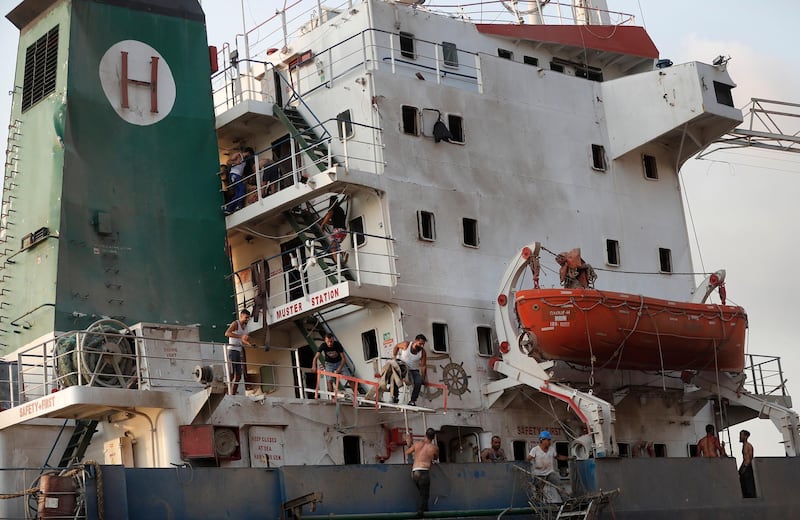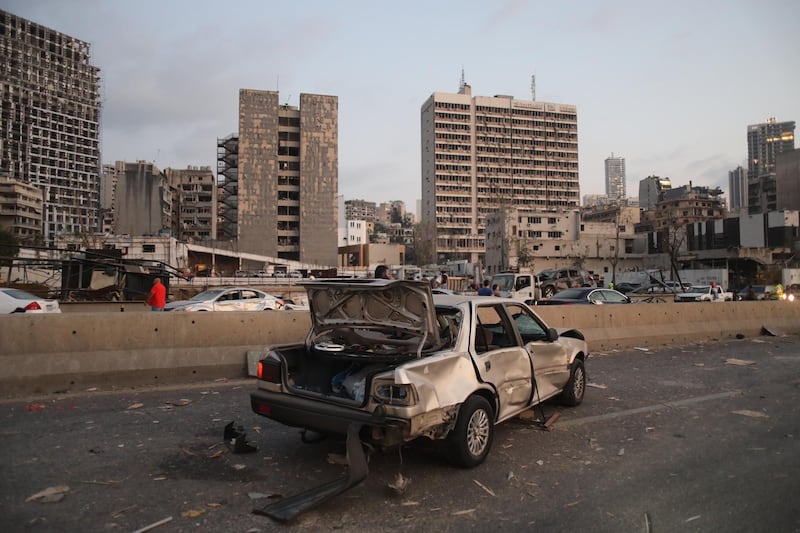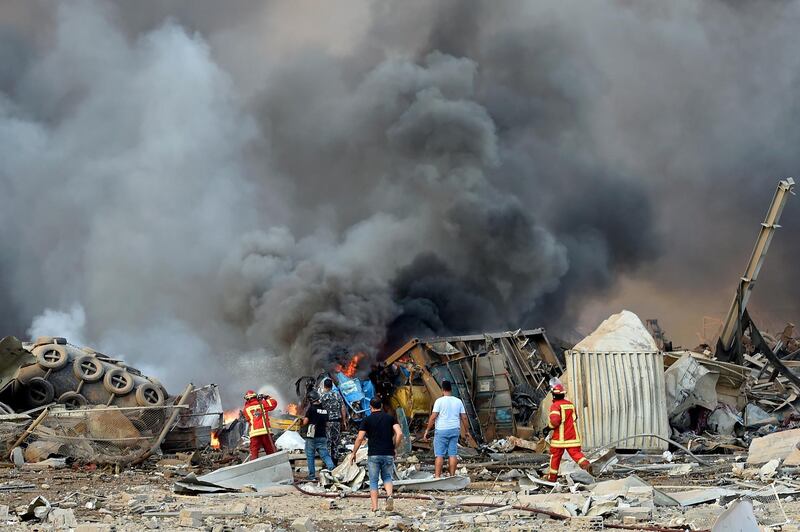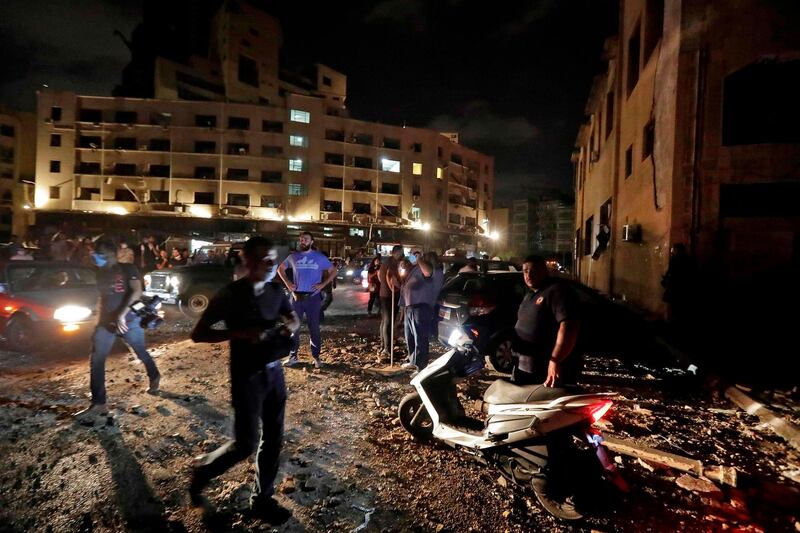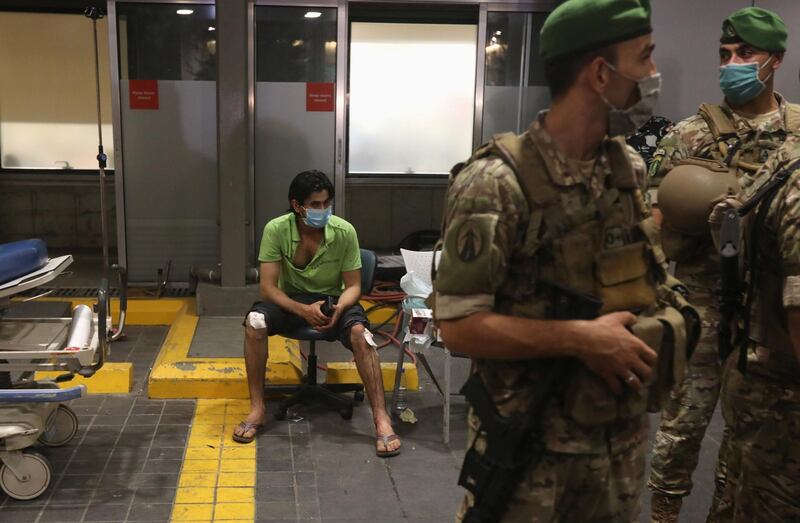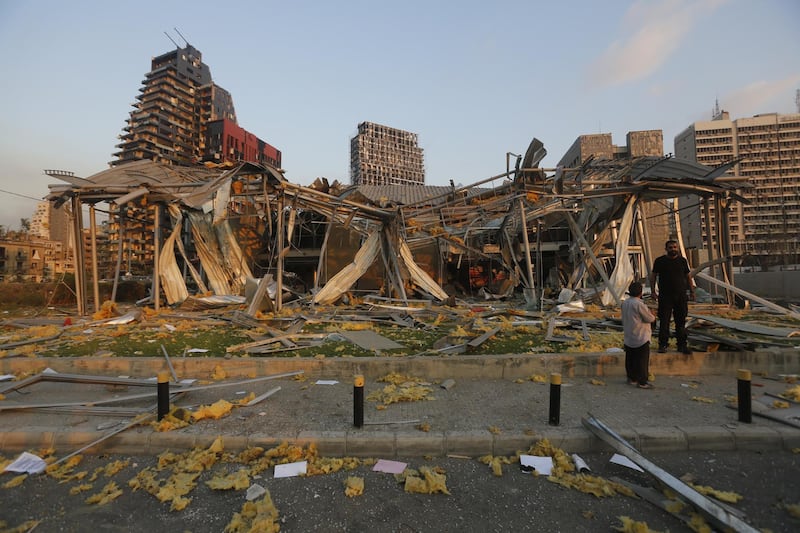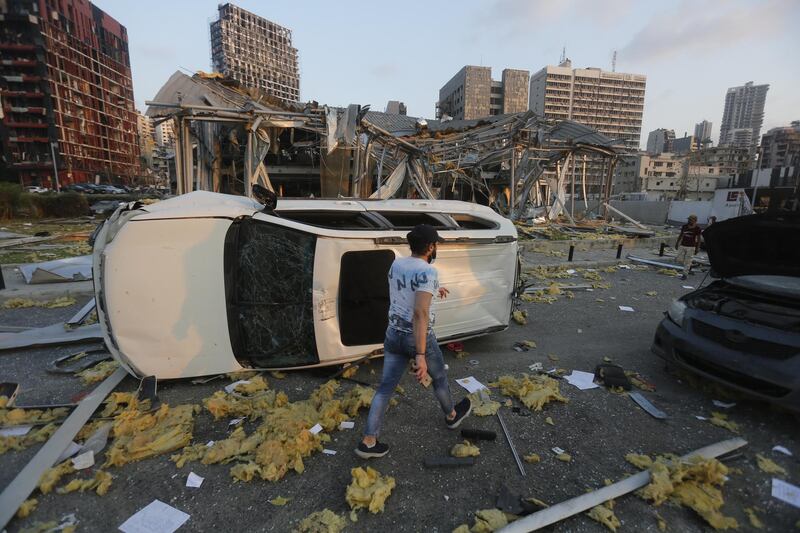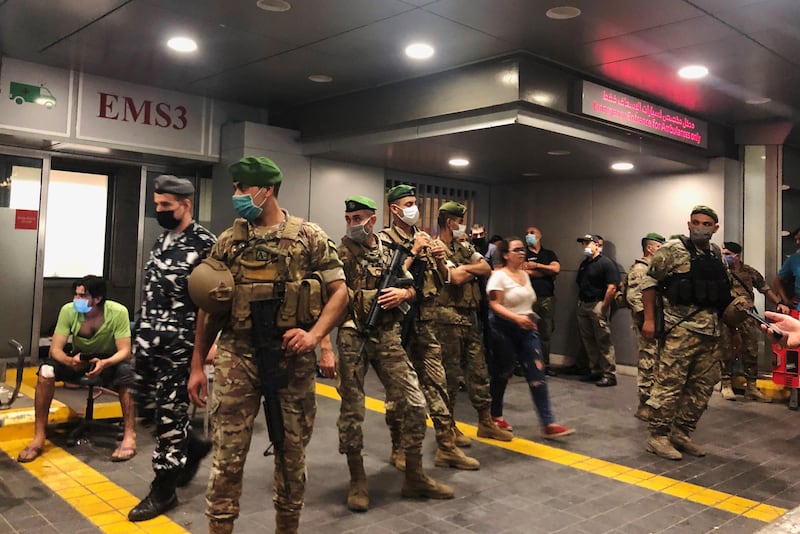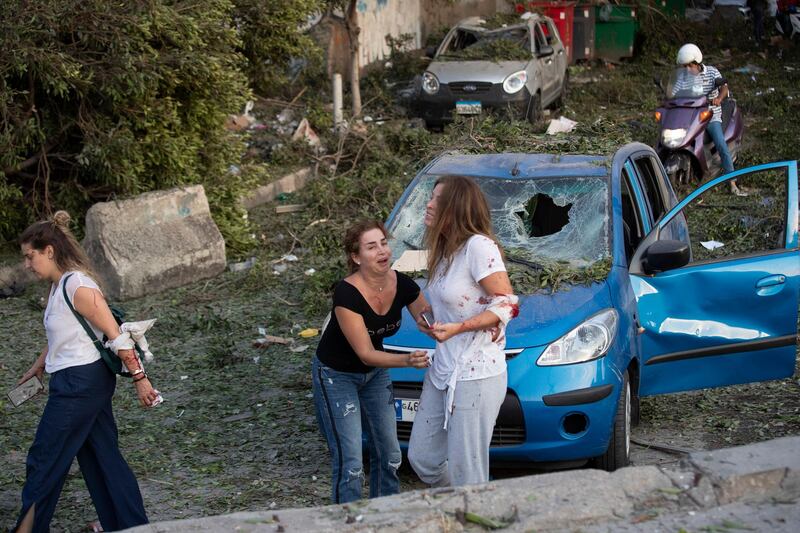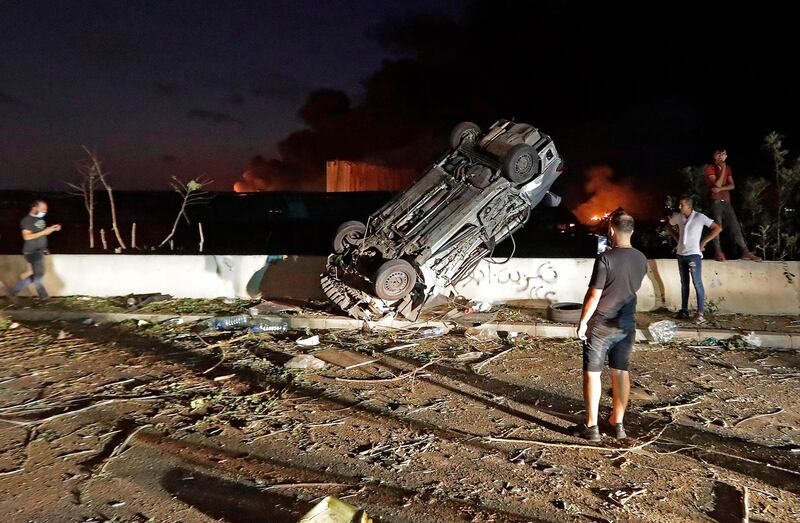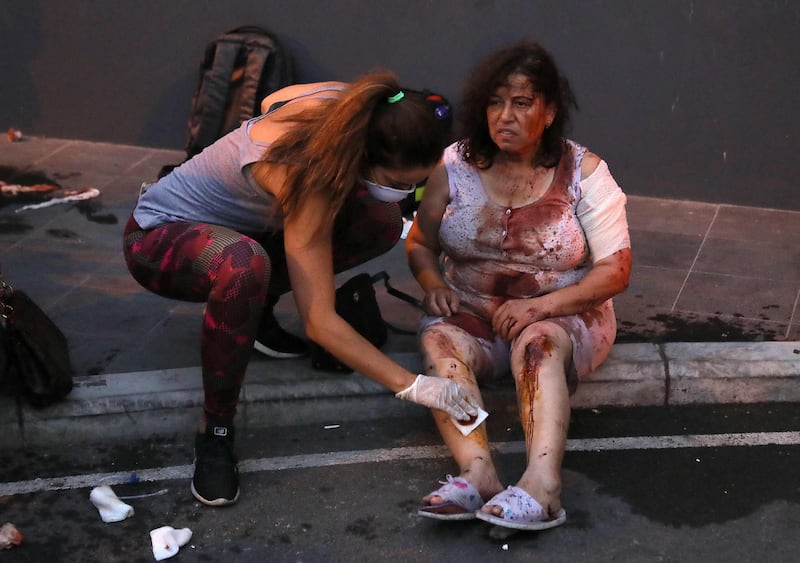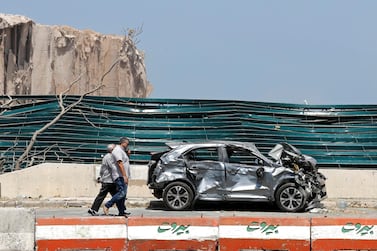Lebanon's attorney general agreed on Wednesday to the release of several low-ranking civil servants who were detained in the investigation into the Beirut port explosion last August.
Judge Tarek Bitar, the lead investigator in the case, had referred seven requests to Attorney General Ghassan Khoury, who approved only the release of low-ranking port employees and workers, the National News Agency said.
The NNA said Judge Khoury turned down requests for the release of senior civil servants but did not identify any of the detainees.
The investigation into the explosion that killed more than 200 people last August and destroyed thousands of properties across the capital has stalled for months without progress amid political bickering over the course of the inquiry.
Former lead investigator Fadi Sawan was removed by the supreme court after charging the caretaker prime minister and three other former ministers of criminal negligence in the case. He was swiftly replaced by Judge Bitar.
On Wednesday, the families of firefighters who were first to arrive at the site of the explosion to contain the fire that preceded the explosion, lamented the lack of progress in the investigation.
“After waiting for four months for serious procedures to start to hold those who are responsible accountable, unfortunately we have yet to witness any results,” a statement released by the families said.
The statement described the detention of low-ranking employees as an attempt to “distract the public” and shift attention away from investigating “security officials, politicians, and judges”.
Ten months after the blast, it is unclear what triggered the explosion, who owned the explosive chemicals or why hundreds of tonnes of ammonium nitrate were stored for six years at one of the region's busiest ports, with the knowledge of the country's top officials and security agencies.
Doubts over the integrity of the inquiry prompted calls by victims of the blast and their families for an international investigation.
Earlier this month, tens of international and Lebanese NGOs and survivors and families of victims called for a UN investigation into the blast, accusing local authorities of failing to conduct a transparent and thorough investigation.
“The Lebanese authorities have had over 10 months to demonstrate that they are willing and capable of conducting a credible investigation into the catastrophic Beirut blast, but they have failed on all accounts,” said Aya Majzoub, Lebanon researcher at Human Rights Watch.
Human Rights Watch also argued that the “impact and aftermath of the explosion violated Lebanon’s international human rights obligations to guarantee the rights to education, housing, health, food, and property”.
The explosion displaced tens of thousands of families and compounded Lebanon’s worst economic and financial crisis in decades, causing billions of dollars in damages across the capital.
The crisis, which has plunged more than half the population into poverty, was further accentuated by Covid-related restrictions and political paralysis.
Lebanon has been without a government since the blast toppled caretaker prime minister Hassan Diab with the country’s top officials still at loggerheads over the upcoming Cabinet’s makeup and reform agenda.
